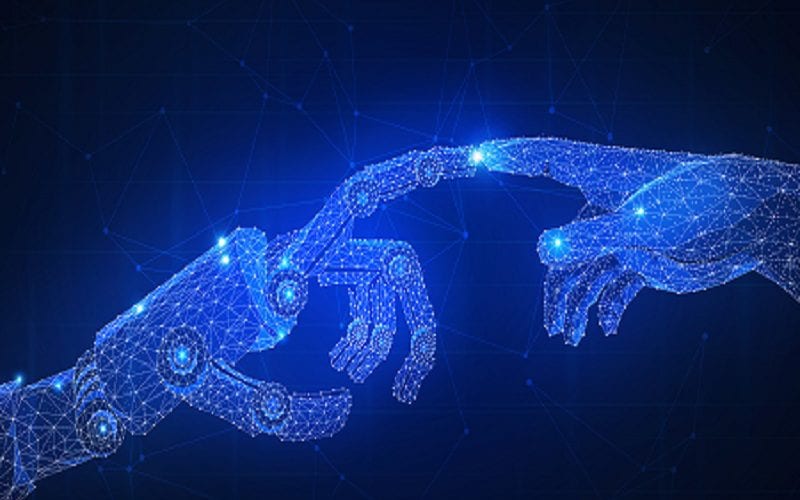Dr. Lubomir Todorov, a Former Ambassador of Ministry of Foreign Affairs, Bulgaria, Founder of Universal Future Foundation, Researcher and Lecturer in Civilizational Studies, Social Anthropology, Digital Democracy, AI, Geopolitics, and Future Global Strategy participates in Risk Roundup to discuss Complex Challenges facing The Future of Humanity.
The Future of Humanity
As we stand on the brink of a technological tsunami in cyberspace, geospace, and space (CGS), the scale, scope, and complexity of the impact of technology transformation, revolution and evolution will be unlike anything humankind has experienced before in any of its prior technological revolutions. The speed of the current ideas, innovations, technology and breakthroughs has no historical precedent and is fundamentally disrupting almost every component of a nation (government, industries, organizations, and academia). In addition, the breadth, depth, and impact of these changes herald the transformation of entire interconnected and interdependent systems of politics, socialization, education, innovation, production, management, markets, governance, security, values, culture, purpose, and more.

While there is no way to calculate just how this technology transformation, revolution, or evolution will unfold, one thing is clear: it changes the very fundamentals and foundation of nations and its security and the response to it must be well thought, integrated and comprehensive, for the future of humanity. Time is now to talk about the Complex Challenges Facing the Future of Humanity!
For more please watch the Risk Roundup Webcast or hear the Risk Roundup Podcast
About the Guest
Dr. Lubomir Todorov is a Researcher and Lecturer in Civilizational Studies, Social Anthropology, Digital Democracy, AI, Geopolitics; and the Founder of the Universal Future Global Strategy.
His work and studies in diverse anthropological, political, and cultural realities like Japan, Australia, Russia, Netherlands, New Zealand, Czechia, and numerous visits across the globe, were abundant in meetings with not only politicians and officials but also people of different existential backgrounds: aboriginal painters, US generals, Buddhist and Shinto priests, Majesties and members of Royal families, Russian scientists, Mapuche musicians in Chile, British MPs, Indian philosophers, Czech professors, CEOs of top Japanese corporations, Chinese researchers, Dutch businessmen, etc. This primary data fused with everyday news about human activities and their consequences on the world and were re-assimilated in his mind by theoretical knowledge to gradually constitute a distinct resolution to re-examine his understanding of politics and the nature of human society. Trying to keep the methodology machine uncontaminated by ideological, political, or personal prejudice, he clung to one only rule: If you aspire for the beauty of truth, it is only facts and logic that matter. Questioning the viability of human social and political behavior and the capacity of existing political systems to lead to where people want to be, he believes that sooner than later, in pursuit of individual happiness, humanity will embrace the ideas of Civilizational Thinking.
About the Host of Risk Roundup
Jayshree Pandya (née Bhatt), Founder and CEO of Risk Group LLC, is a scientist, a visionary, an expert in disruptive technologies, and a globally recognized thought leader and influencer. She is actively engaged in driving global discussions on existing and emerging technologies, technology transformation, and national preparedness.
Her work focuses on the impact of existing and emerging technological innovations on nations, national preparedness, and the very survival, security, and sustainability of humanity. She believes that the reality of the imminent technological and economic singularity necessitates that Darwin’s evolution theory, a theory that has evolved from natural selection to the survival of the fittest to symbiosis to mutualism be translated and scaled from micro to macro level and understood and evaluated from the perspective of the transformative and evolutionary changes seen across nations (largely triggered due to technology transformation and re-defining and re-designing of systems at all levels). Her research in this context evaluates the evolution of intelligence in all forms, researches strategic security risks emerging from disruptive innovations, reviews the diminishing capacities of the risk management infrastructure, points out the changing role of decision-makers, defines dynamic decision-making approaches with machine intelligence, integrates all components of a nation: governments, industries, organizations and academia (NGIOA), and defines strategic security risks so that nations can improve the state of risk-resilience across cyberspace, geospace and space (CGS). As nations make a move from centralization towards decentralization, the re-defining and re-designing of systems at all levels evaluated in Dr. Pandya’s comprehensive research scholarship include artificial intelligence, machine learning, deep learning, internet of things, blockchain, cryptocurrency, quantum computing, virtual reality, synthetic biology, big data analytics, drones, nanosatellites, biotechnology, nanotechnology, gene editing, and much more. Her research is much needed for the survival and security of humanity today and in the coming tomorrow.
Jayshree’s doctorate work in the 1980s focused on hydrogen production by Halobacterium halobium, for which she received India’s National Young Scientist Award in Biochemistry. Her many publications on this work have been cited in several books, journals, and reports published by governments, including a report from the United States Department of Energy. Her work on anti-cancer drugs also received worldwide attention and, amongst other citations, has been referenced in a report published by the World Health Organization. In 1991, she was invited to come to the United States (under the Scientist Exchange Program) to continue research on hydrogen production and was awarded a post-doctoral fellowship at the Hawaii Natural Energy Institute. After that, she researched atherosclerosis at the University of Chicago Medical School. Next, she took a job at Aurotech, a biotech company based in Wisconsin. As in her Ph.D. research, she used microorganisms to develop natural processes and technologies, and some of the projects she worked on were quite promising. While her doctorate and post-doctorate studies gave her the first taste of the power of interdisciplinary research, it also introduced her to the repressive power of institutional silos and inefficiencies. As a result, her physical location wasn’t the only thing that shifted in the 1990s; her focus did as well. Since Microbiology trained her to see changes in tiny organisms coming from natural selection, she began to see similar forces at work in the evolution of individuals as well as entities across NGIOA and society in general. It’s all the same basic mechanism. Her career took another turn after she was asked to consider risk management as part of a strategic planning effort by one of her employers. She quickly realized that most risk management is all process, with no actual benefit. That was the beginning of Risk Group, the strategic security risk research organization she founded in 2002, from where she is passionately creating and managing cutting-edge security ventures that bring a futurist perspective to nations and all its components to improve innovation capacity and to define and design new ideas, innovations, products, and services for security and sustainability.
From the National Science Foundation to organizations from across nations, Jayshree is an invited speaker on emerging technologies, technology transformation, digital disruption, strategic security risks, industry risks, and country risks. She is the author of the book, The Global Age: NGIOA @ Risk and has also published many scientific and technical papers.
Jayshree advises decision-makers at all levels on existing and emerging technologies: emerging applications, impact, and solutions.
About Risk Roundup
Risk Roundup, a global initiative launched by Risk Group, is a security risk reporting for risks emerging from existing and emerging technologies, technology convergence, and transformation happening across cyberspace, geospace and space. Risk Roundup is released in both audio (Podcast) and video (Webcast) format and is available for subscription at (Risk Group Website, iTunes, Google Play, Stitcher Radio, Android, and Risk Group Professional Social Media).
About Risk Group
Risk Group LLC, a leading strategic security risk research and reporting organization, is a private organization committed to improving the state of risk-resilience through collective participation, and reporting of cyber-security, geo-security, and space-security risks in the spirit of global peace through risk management. Incorporated as a limited liability corporation and headquartered in Sugar land TX, Risk Group is independent, impartial, and not tied to any interests. Best known for its Risk Roundup initiative, Risk Group publishes benchmark Risk Roundup Webcast and Podcast reports on Artificial Intelligence, Machine Learning, Deep Learning, Internet of Things, Blockchain, Cryptocurrency, Quantum Computing, Virtual Reality, Synthetic Biology, Big Data, Drones, Nanosatellites, Cyber-Security, Geo-Security, Space-Security, Cyber Warfare, Electronic Warfare, Dual-Use Technologies. Risk, Risk Management, Resilience, Wearables, Technology Trends, Strategic Security, Futurism, and much more. The rapidly growing Risk Roundup Community is a beacon of hope for the future of humanity.
Copyright Risk Group LLC. All Rights Reserved





 Blockchain and The Future of 3D Printing
Blockchain and The Future of 3D Printing